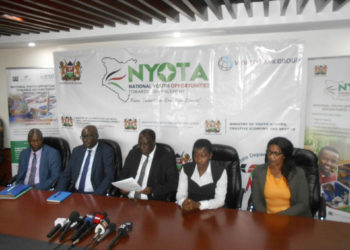The Kenya Revenue Authority (KRA) has issued a public notice outlining significant changes to Pay-As-You-Earn (PAYE) computations, following the enactment of the Tax Laws (Amendment) Act, 2024. Effective December 27, 2024, the revised rules introduce new deductible allowances, remove specific tax reliefs, and redefine taxable employment income.
Under the new provisions, employers and employees can now deduct several amounts when determining taxable income. These include contributions to the Affordable Housing Levy and post-retirement medical funds, capped at Kshs. 15,000 per month. Contributions to the Social Health Insurance Fund (SHIF) and mortgage interest of up to KES. 360,000 per year (KES. 30,000 per month) are also deductible. Additional deductions are allowed for contributions to registered pensions or provident funds, subject to a maximum of KES. 360,000 annually.
Notably, the new law discontinues two tax reliefs: the Affordable Housing Relief and the Post-Retirement Medical Fund Relief. This move, while simplifying tax structures, is expected to impact taxpayers who relied on these deductions.
In a statement, the KRA emphasized that these changes are part of efforts to streamline tax compliance and align with fiscal policy objectives. “We remain committed to ensuring support to all persons in their tax compliance journey,” the notice read, urging taxpayers to seek clarification via KRA’s contact centers or service offices.
The revised rules also redefine taxable employment gains and profits. The value of benefits provided to employees, where aggregate wages are below KES. 60,000 per year (KES. 5,000 per month), and meal allowances under the same threshold, are now excluded. Additionally, gratuities or employer-paid sums exceeding KES. 360,000 annually for registered pension schemes will no longer be exempt from tax.
The KRA has called for employer cooperation to ensure a seamless transition to the updated framework. The notice concludes by reiterating the agency’s dedication to “fostering compliance while safeguarding fairness in Kenya’s tax regime.”

















